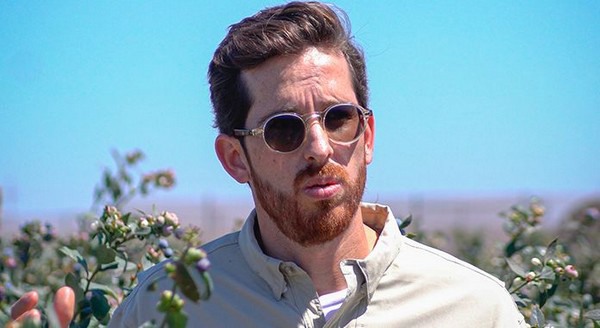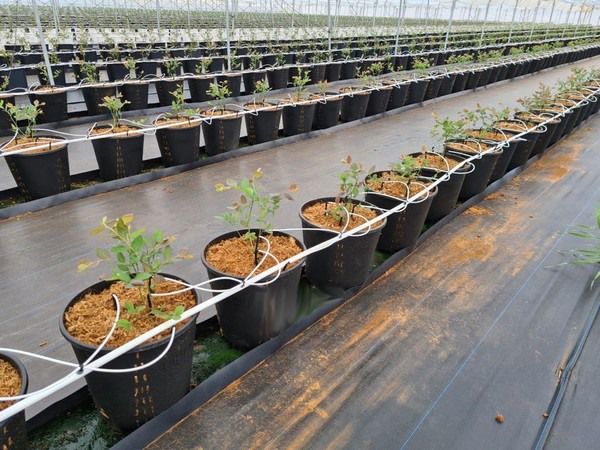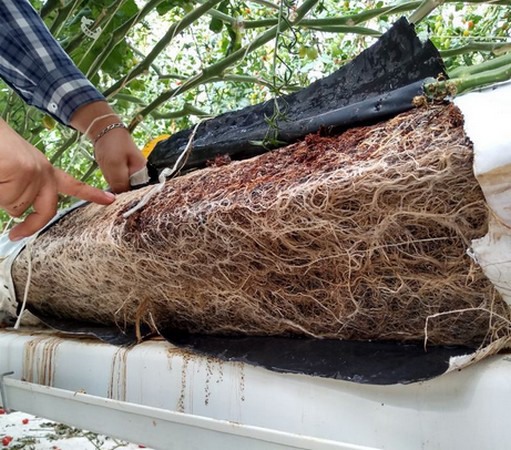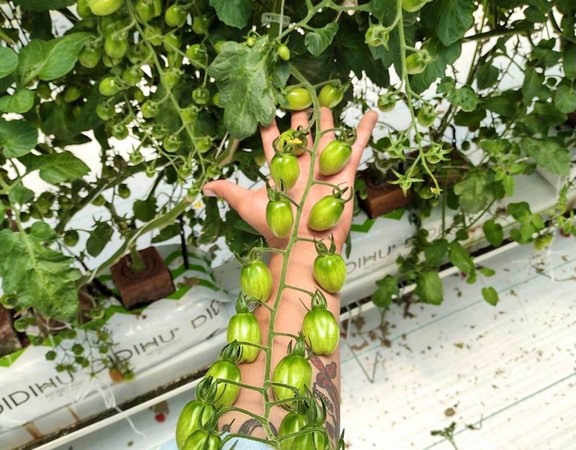“Being a grower has taught me a lot, it has allowed me to experience the problems and challenges us farmers deal with, and this is why I know firsthand that we must now implement sustainable farming methods such as hydroponics in order to be more efficient in the use of water/nutrition and have more plant density in order to achieve more quality produce. Without a doubt, I anticipate that the next pandemic will be a global drought,” Raúl Mercado states.
The urgency to grow sustainably is increasing given the economic and climatic conditions we are currently living in. So how can we manage to grow safer, more nutritious food and with a lesser impact on our planet? For Raúl Mercado, DIDIHU Co-founder, one of the solutions is implementing AgTech in hydroponics.

Raúl Mercado at his farm in Sinaloa, Mexico
A passion for farming runs through Raúl's veins: he comes from a family that, for over 70 years, has been growers and researchers, mainly in the pacific area of Mexico. They engaged in traditional farming for a long time, planting grains such as beans, corn, and chickpea, but, due to lack of water and low market prices, they decided to explore high-value crops for exports such as blueberries and started growing them in drylands and extreme temperatures (up to 43ºC), which forced them to implement AgTech in hydroponics.
“We saw an opportunity in growing blueberries for export, but in the Pacific area of Mexico (mainly Sinaloa) we have arid lands and we were not going to be able to make it without growing them in hydroponics systems. We needed to integrate substrate and specialized designed pots”, he explains.

Didihu AgTech: Pothu 27 + Fibermix substrate
In 2017 he started growing blueberries in his farm Mercaberries, located in Los Mochis, Sinaloa, Mexico, and he started conducting research to be able to do so in a sustainable way, which led him to specialize in AgTech in hydroponics and start designing and manufacturing cocopeat substrates and patented hydroponic pots.
Developing new solutions
This is why, while founding his company DIDIHU, his mission and commitment is clear: “developing new solutions and technologies to join and help my fellow growers to become more productive in a sustainable manner, and make them feel proud to contribute, even if it is just a little, to achieve food security for future generations.”
“Being a grower is extremely difficult, we are always overcoming challenges such as workforce shortages, market prices, and lack of water. Our generation is aware of our global sustainability problem, which is why we are very open to new agrotechnology. That is truly the only way to regenerate our planet and achieve food security”.

Healthy roots in Didihu substrates
DIDIHU coco coir substrates production facilities are located in Sri Lanka and Mexico.
DIDIHU works in multiple projects around the world, working as consultants from the planning process to crop productivity, which has allowed them to develop more than 2,500 hectares in Mexico, Peru, Colombia, Ecuador, China, and the USA. The DIDIHU Fibermix coconut fiber substrate has proven to be the ideal vehicle for tomato varieties, peppers, and cucumbers.
For Raúl, the AgTech revolution has already started, and it is through DIDIHU that he wants to share his life's purpose: “to serve growers from different parts of the planet with our technology in hydroponics, so that they can grow more with less in a sustainable manner and, this way, to leave a better world for our children's children.”

Grape tomato greenhouse production Didihu substrates
For more information:
Didihu
[email protected]
[email protected]
www.wearedidihu.com
